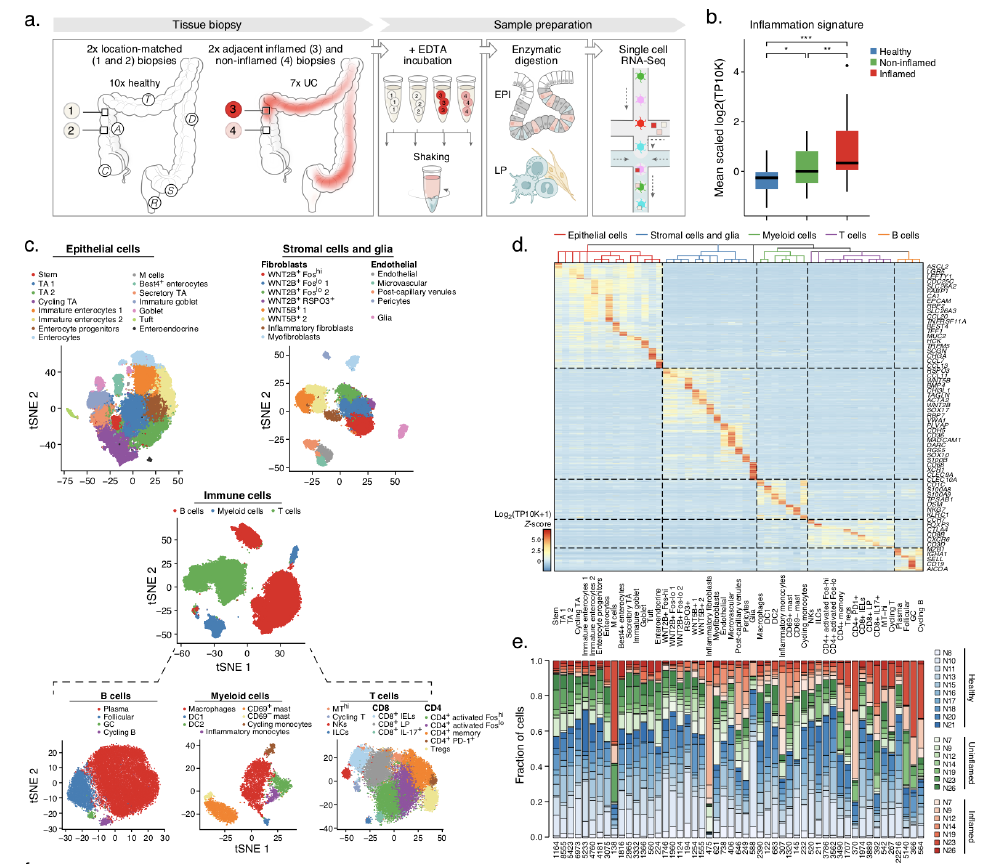Our collaborative work with the Regev and Xavier labs is now available as a pre-print. Read the abstract below or read the complete version on the BioRxiv.
Abstract
Genome-wide association studies (GWAS) have revealed risk alleles for ulcerative colitis (UC), but their cell type and pathway specificities are often unknown. Here, we generate an atlas of 115,517 cells from the colon mucosa of seven UC patients and ten healthy individuals, revealing 51 epithelial, stromal, and immune cell subsets, including a subset of BEST4+ enterocytes, which may sense and respond to pH, and IL13RA2+IL-11+ inflammatory fibroblasts, which we associate with resistance to anti-TNF therapy. Inflammatory fibroblasts, inflammatory monocytes, microfold-like cells, and CD8+IL-17+ T cells expand during disease, and form intercellular interaction hubs that mediate cross-talk between diverse cellular lineages. We identify hundreds of putative autocrine and paracrine cell-cell interactions that may explain the migration, expansion, or inhibition of cell types with disease. Surprisingly, UC risk genes are often cell type specific and co-regulated in relatively few gene modules, suggesting convergence onto limited sets of cell types and pathways. Using this observation, we nominate and infer putative functions for UC risk genes across all GWAS loci. Our atlas thus provides a framework for interrogating complex human diseases and mapping risk variants onto their cell types and pathways of activity.

